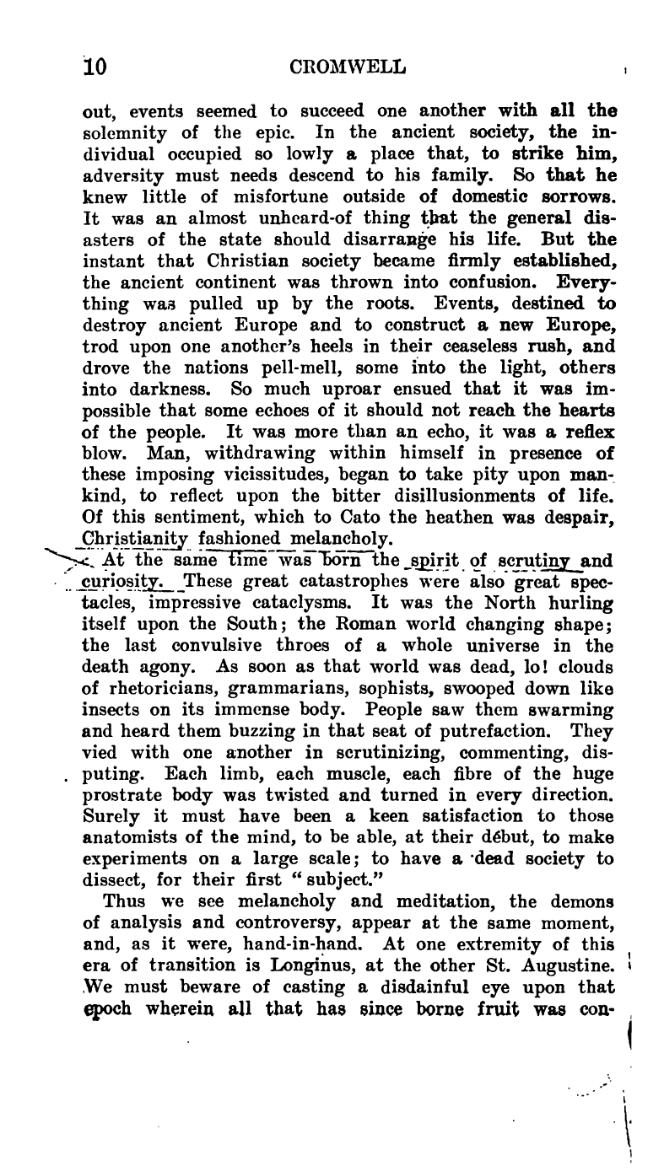out, events seemed to succeed one another with all the solemnity of the epic. In the ancient society, the individual occupied so lowly a place that, to strike him, adversity must needs descend to his family. So that he knew little of misfortune outside of domestic sorrows. It was an almost unheard-of thing that the general disasters of the state should disarrange his life. But the instant that Christian society became firmly established, the ancient continent was thrown into confusion. Everything was pulled up by the roots. Events, destined to destroy ancient Europe and to construct a new Europe, trod upon one another's heels in their ceaseless rush, and drove the nations pell-mell, some into the light, others into darkness. So much uproar ensued that it was impossible that some echoes of it should not reach the hearts of the people. It was more than an echo, it was a reflex blow. Man, withdrawing within himself in presence of these imposing vicissitudes, began to take pity upon mankind, to reflect upon the bitter disillusionments of life. Of this sentiment, which to Cato the heathen was despair, Christianity fashioned melancholy.
At the same time was born the spirit of scrutiny and curiosity. These great catastrophes were also great spectacles, impressive cataclysms. It was the North hurling itself upon the South; the Roman world changing shape; the last convulsive throes of a whole universe in the death agony. As soon as that world was dead, lo! clouds of rhetoricians, grammarians, sophists, swooped down like insects on its immense body. People saw them swarming and heard them buzzing in that seat of putrefaction. They vied with one another in scrutinizing, commenting, disputing. Each limb, each muscle, each fibre of the huge prostrate body was twisted and turned in every direction. Surely it must have been a keen satisfaction to those anatomists of the mind, to be able, at their début, to make experiments on a large scale; to have a dead society to dissect, for their first "subject."
Thus we see melancholy and meditation, the demons of analysis and controversy, appear at the same moment, and, as it were, hand-in-hand. At one extremity of this era of transition is Longinus, at the other St. Augustine. We must beware of casting a disdainful eye upon that epoch wherein all that has since borne fruit was con-
